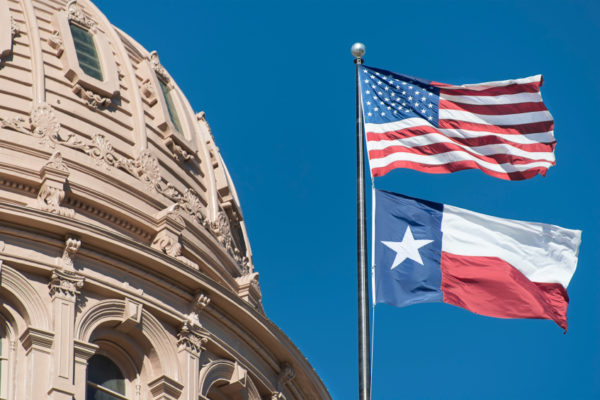News reports recently pointed out that Lt. Gov. Dan Patrick, Land Commissioner George P. Bush and Commissioner of Agriculture Sid Miller aren’t planning to debate their Democratic opponents before the upcoming election. In fact, Miller’s spokesman, Todd M. Smith, said, “It’ll be a cold day in Texas before we give our opponent the opportunity to have free name recognition by having a debate.”
Although we can appreciate the abnormal candor, debates are more than just platforms for raising name recognition. Debates are a way for citizens to learn about their representatives — what they’ve been doing in office and the competing visions offered by their competition.
Simply put, the people of Texas deserve politicians who are willing to debate.
To his credit, Gov. Gregg Abbott has agreed to debate his challenger, Democrat Lupe Valdez. This is a model that all incumbents should follow.
Scholars have long found debates appealing because citizens find them entertaining and informative. Researchers have analyzed all of the studies on the effects of viewing presidential debates and found that debates increase issue knowledge and the number of issues people use to evaluate candidates. Debates feature contrasts between the candidates, which sparks the viewers’ interest, and numerous studies show that debates help spread the word about the election. For a state that ranks 47th in the country in voter turnout, our elections could use all the publicity they can get.
As our politics have grown more toxic and divided, the need for debate becomes even clearer. Debates provide an opportunity for candidates to model the civility missing from many political conversations happening today, both in person and online. They provide an opportunity for two individuals, representing opposing political ideologies, to come together, shake hands and provide different visions for public policy. Even when those visions oppose each other, there is a power in the shared purpose: There is power in that handshake.
The final debate between then-candidate Donald Trump and former Secretary of State Hillary Clinton was the first presidential debate since 1976 in which the candidates did not share the customary handshake. And voters took notice. This brief gesture personifies the shared purpose that should be at the heart of political disagreement. Debates are an opportunity for candidates to show their capacity not only for political leadership but for cooperation and moral leadership — traits we need now more than ever.
If promoting political civility isn’t convincing, perhaps Texas incumbents should take a warning from one of the biggest political upsets this year. Alexandria Ocasio-Cortez stunned political observers by beating Democratic incumbent Rep. Joe Crowley in the New York primary last month. Ocasio-Cortez ran to Crowley’s left and had an impressive ground game, but Crowley committed an unforced error by not showing up to a debate. Crowley’s absence became a talking point, and it seems voters didn’t like being taken for granted. Incumbents should show respect for their constituents.
Pollsters will debate about how strong the upcoming “blue wave” might be, and for incumbent Republicans, a reticence to meet their opponents publicly for the sake of their constituents can only hurt them. Regardless of the political implications, though, incumbents should show up for debates because their constituents deserve a chance to hold them accountable. If they’ve been doing their jobs, they have nothing to fear.
Bethany Albertson is an associate professor of government at The University of Texas at Austin.
Charlie Bonner is an undergraduate student at The University of Texas at Austin.
A version of this op-ed appeared in the Dallas Morning News, Waco Tribune Herald, Abilene Reporter News, Austin American Statesman and the Houston Chronicle.
To view more op-eds from Texas Perspectives, click here.
Like us on Facebook.




